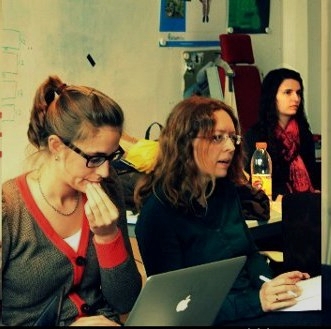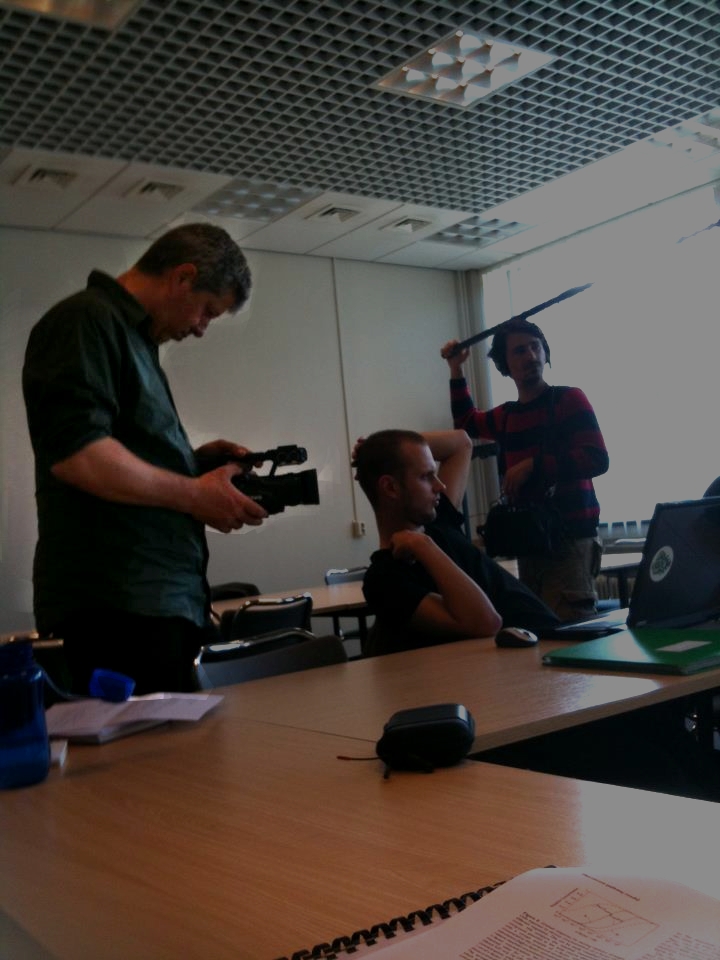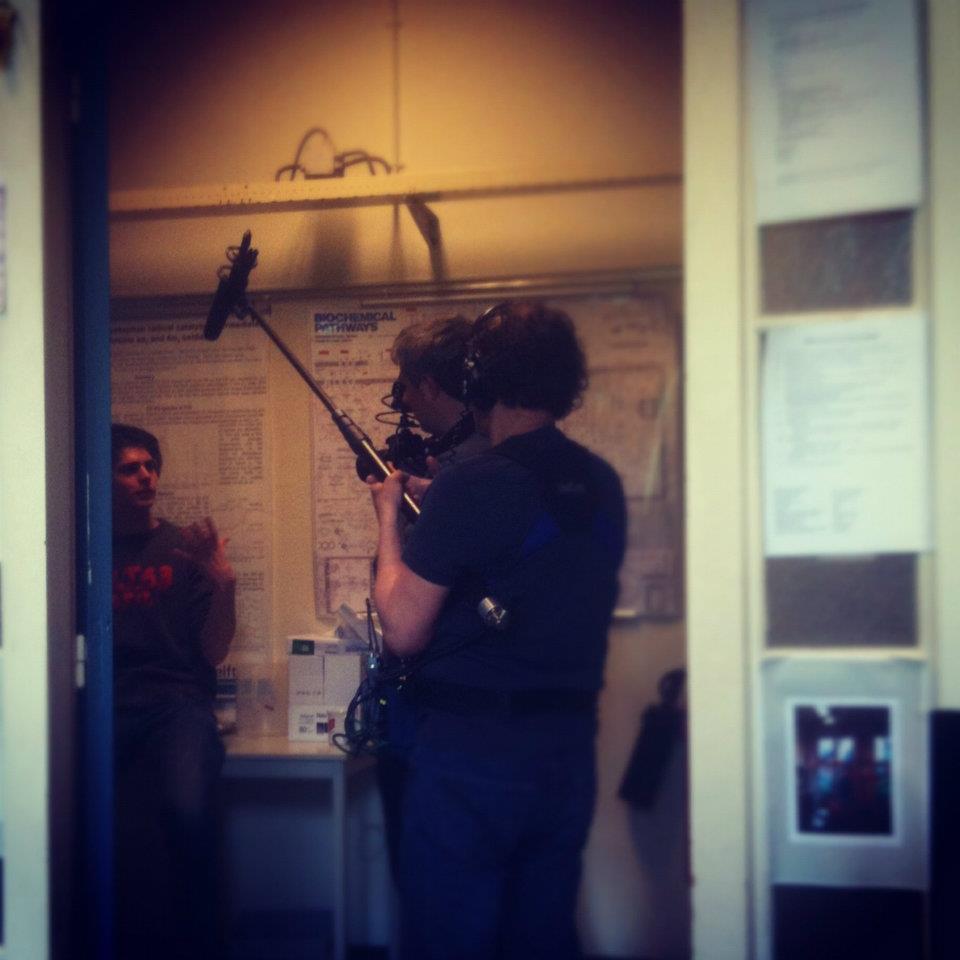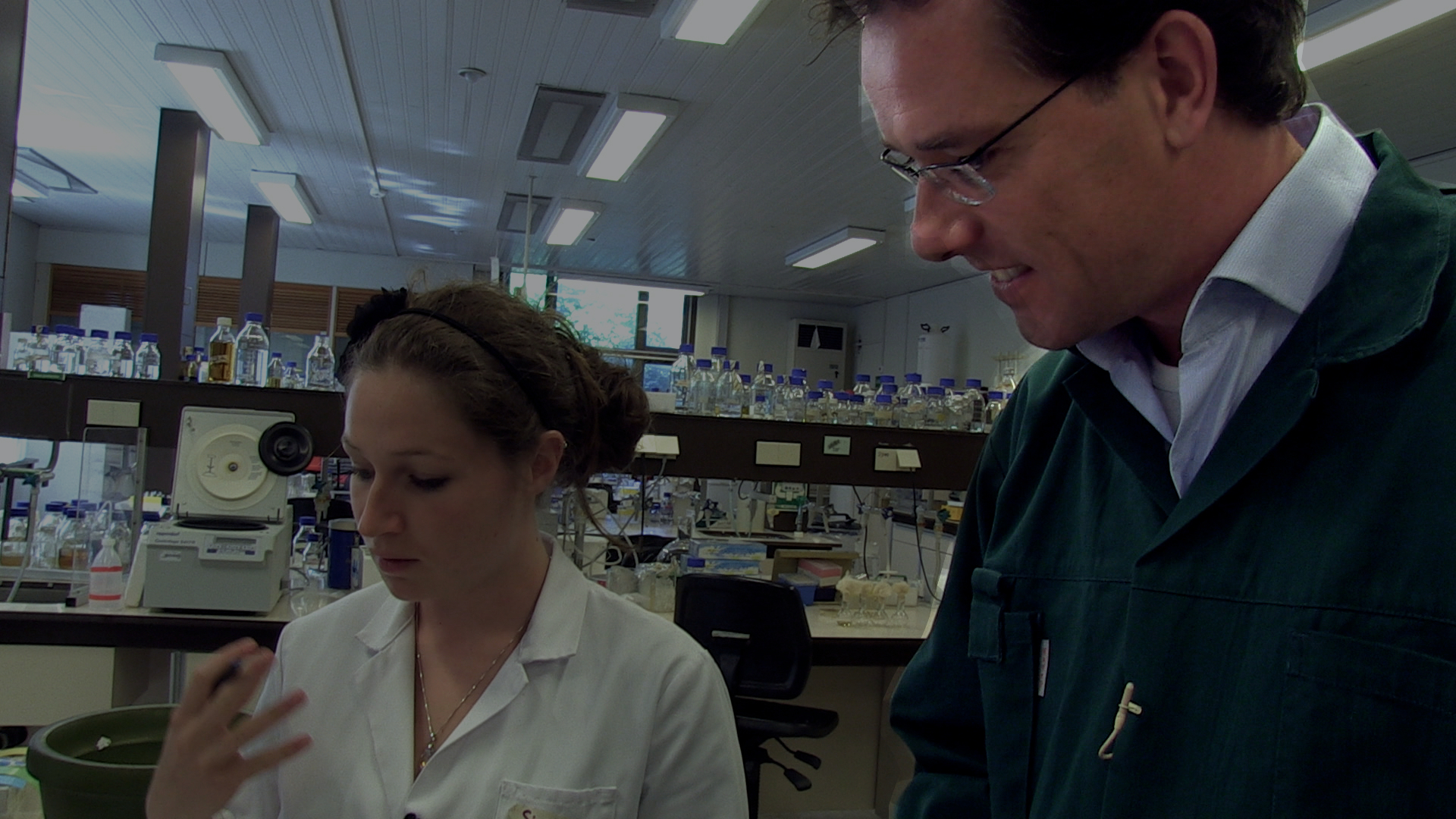Team:TU-Delft/HP
From 2012.igem.org
(Difference between revisions)
| Line 86: | Line 86: | ||
<p>The TU Delft 2012 team will be on seen on Belgian, Dutch and German television next year! During this project a Flemish documentary film director, Frank Theys was filming the team for his documentary Lab-Life. This full-length documentary is focused on how modern scientific research is being carried out, from the idea-conception through research, to results and publication. This documentary will become a real international scope on research, including multicultural aspects. | <p>The TU Delft 2012 team will be on seen on Belgian, Dutch and German television next year! During this project a Flemish documentary film director, Frank Theys was filming the team for his documentary Lab-Life. This full-length documentary is focused on how modern scientific research is being carried out, from the idea-conception through research, to results and publication. This documentary will become a real international scope on research, including multicultural aspects. | ||
<br/> | <br/> | ||
| + | <br/> | ||
| + | |||
| + | <br/><br/> | ||
Frank Theys started to record the team from the very beginning. The film director recorded many brainstorm sessions, and followed us till the final topic, Snifferomyces! Knowing what this project will be about, he started to film the amazing lab team while preforming experiments, but also the modellers who explain the importance of their contribution in the scientific world. And will film the final presentation at the Jamboree. Furthermore another interesting part of this documentary will be the focus on societal implications. The problems what comes with scientific research and the solutions and breakthroughs will be shown to a very brought audience on the television senders NOS, VRT and ZDF next year. | Frank Theys started to record the team from the very beginning. The film director recorded many brainstorm sessions, and followed us till the final topic, Snifferomyces! Knowing what this project will be about, he started to film the amazing lab team while preforming experiments, but also the modellers who explain the importance of their contribution in the scientific world. And will film the final presentation at the Jamboree. Furthermore another interesting part of this documentary will be the focus on societal implications. The problems what comes with scientific research and the solutions and breakthroughs will be shown to a very brought audience on the television senders NOS, VRT and ZDF next year. | ||
<br/> | <br/> | ||
| + | <br/> | ||
| + | |||
| + | <br/><br/> | ||
By participating in this documentary this team will let a broad audience know about the daily life in the laboratory in the fields of the new technologies (NBIC). The team will inform people about what scientific research is about today. This means more than just doing lab work. Also other daily aspects that are connected to the research were filmed by Frank, like funding, public relations, social events, the team’s expectations of the research and possible applications, basically the whole biotope around a modern research team. | By participating in this documentary this team will let a broad audience know about the daily life in the laboratory in the fields of the new technologies (NBIC). The team will inform people about what scientific research is about today. This means more than just doing lab work. Also other daily aspects that are connected to the research were filmed by Frank, like funding, public relations, social events, the team’s expectations of the research and possible applications, basically the whole biotope around a modern research team. | ||
<br/> | <br/> | ||
| + | <br/> | ||
| + | |||
| + | <br/><br/> | ||
This team had extra help from an embedded humanist, named Daan Schuurbiers, who followed the research as a midstream modulation project. Including Daan to the project, the team became also aware of the social sciences of the research. ‘’Midstream modulation asks how research is to be carried out, which is the main business of research, rather than whether a research project should be carried out, which is an upstream policy question. It is a means to evaluate and adjust research decisions in light of societal factors while the research process is taking place.’’ There are 3 different stages in the governance of science and technology, upstream, downstream and midstream modulation, see figure 1. So by thinking about midstream modulation, this project is connected with the scientific research as well as to the social issues. In this documentary you will see how science will meet the human interest in many ways. | This team had extra help from an embedded humanist, named Daan Schuurbiers, who followed the research as a midstream modulation project. Including Daan to the project, the team became also aware of the social sciences of the research. ‘’Midstream modulation asks how research is to be carried out, which is the main business of research, rather than whether a research project should be carried out, which is an upstream policy question. It is a means to evaluate and adjust research decisions in light of societal factors while the research process is taking place.’’ There are 3 different stages in the governance of science and technology, upstream, downstream and midstream modulation, see figure 1. So by thinking about midstream modulation, this project is connected with the scientific research as well as to the social issues. In this documentary you will see how science will meet the human interest in many ways. | ||
| Line 97: | Line 106: | ||
</p> | </p> | ||
</td> | </td> | ||
| - | + | <br/> | |
| + | |||
| + | <br/><br/> | ||
Revision as of 16:49, 24 September 2012


 "
"

















